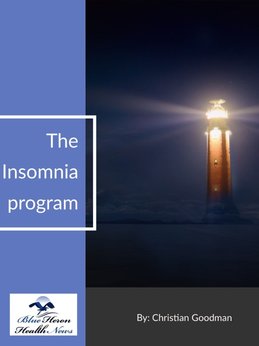
The Insomnia Program™ By Christian Goodman This program has been created by Christian Goodman, a natural health expert and sufferer of insomnia. He has used an audio program to let your fall sleep with the help of a bit of a hypnotic effect on your body.
How does stress contribute to insomnia?
Stress significantly contributes to insomnia by activating the body’s stress response, which can disrupt the normal sleep-wake cycle. Here’s a closer look at how stress impacts sleep:
1. Activation of the Hypothalamic-Pituitary-Adrenal (HPA) Axis
- Stress Response: When stressed, the body activates the hypothalamic-pituitary-adrenal (HPA) axis, leading to the release of cortisol, a hormone that prepares the body for a “fight or flight” response. Elevated cortisol levels can make it difficult to relax and fall asleep (FIU News).
- Circadian Rhythm Disruption: The HPA axis plays a role in regulating the circadian rhythm, the body’s internal clock that dictates sleep patterns. Chronic stress can disrupt this rhythm, leading to difficulties falling asleep or staying asleep (Labiotech.eu).
2. Increased Arousal and Hypervigilance
- Mental Arousal: Stress often leads to increased mental arousal, with racing thoughts, worry, and anxiety about various issues. This mental hyperactivity can make it difficult to unwind at night, delaying the onset of sleep (Med Xpress).
- Physical Arousal: In addition to mental arousal, stress can cause physical symptoms such as increased heart rate and muscle tension. These physical manifestations of stress can make it hard to relax, further contributing to insomnia (FIU News).
3. Impact on Sleep Stages
- Reduced Deep Sleep: Stress can interfere with the ability to enter deep, restorative stages of sleep (such as slow-wave sleep). This can lead to lighter, more fragmented sleep, leaving individuals feeling unrefreshed even after what seems like a full night of sleep (Labiotech.eu).
- Frequent Awakenings: High stress levels can cause frequent awakenings throughout the night, which disrupts the sleep cycle and reduces the overall quality of sleep (Med Xpress).
4. Development of Negative Sleep Patterns
- Sleep Anxiety: Ongoing stress can lead to anxiety about sleep itself, where the fear of not sleeping becomes a self-fulfilling prophecy. This anxiety can perpetuate insomnia, as individuals become increasingly stressed about their inability to sleep (FIU News).
- Poor Sleep Hygiene: Stress can lead to behaviors that worsen sleep, such as excessive screen time before bed, irregular sleep schedules, or the use of substances like caffeine or alcohol to cope with stress, all of which can contribute to insomnia (Labiotech.eu).
5. Long-Term Consequences
- Chronic Insomnia: When stress-related insomnia becomes chronic, it can lead to long-term sleep disturbances that affect overall health, increasing the risk of developing conditions like depression, anxiety disorders, and cardiovascular diseases (Med Xpress).
- Impact on Daytime Functioning: The lack of quality sleep due to stress can impair cognitive function, mood, and productivity, creating a cycle where stress leads to insomnia, which in turn exacerbates stress during the day (FIU News).
Conclusion
Stress contributes to insomnia by activating physiological and psychological responses that disrupt the sleep-wake cycle, leading to difficulties in falling asleep, staying asleep, and achieving restful sleep. Addressing the underlying stress through relaxation techniques, cognitive-behavioral therapy, and lifestyle changes is essential for breaking this cycle and improving sleep quality.

The Insomnia Program™ By Christian Goodman This program has been created by Christian Goodman, a natural health expert and sufferer of insomnia. He has used an audio program to let your fall sleep with the help of a bit of a hypnotic effect on your body.